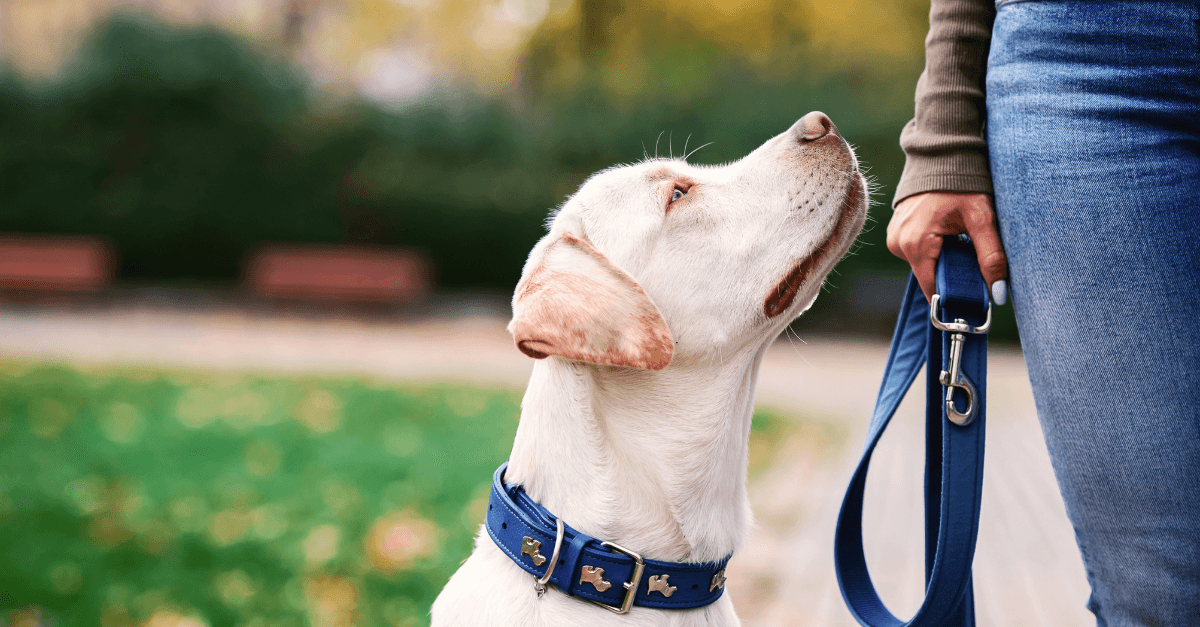Understanding the Duty of a Vet Behaviourist in Pet Dog Training and Well-being
The role of a vet behaviourist is essential in addressing the detailed connection between pets and their proprietors. They integrate veterinary medicine with understandings from pet habits scientific research to take on concerns like aggressiveness and anxiousness. Unlike conventional trainers, their technique concentrates on the underlying root causes of these habits. This nuanced perspective questions concerning the efficiency of traditional training methods and just how a much deeper understanding can transform pet well-being. What methods do they employ to attain these results?
What Is a Vet Behaviourist?
A vet behaviourist is a specialized specialist who concentrates on understanding and addressing the behavior issues of pets, specifically family pets. Their competence combines veterinary medication and animal habits science, allowing them to diagnose and treat a vast array of behavior issues - canine behaviourist near me. These experts usually hold postgraduate degrees, such as a Master's or PhD in pet actions, and are certified by appropriate companies, guaranteeing they have a deep understanding of animal psychology
Veterinary behaviourists evaluate pets via thorough observation and evaluation, considering aspects such as genes, atmosphere, and training background. They create tailored therapy plans, which might consist of desensitization strategies, favorable support strategies, and ecological adjustments. Collaboration with animal owners is necessary, as they supply guidance and assistance throughout the training process. Eventually, the goal of a vet behaviourist is to enhance the wellness of the animal while fostering a harmonious relationship between family pets and their proprietors.
The Value of Recognizing Pet Habits
Comprehending animal behavior is important for both animal owners and specialists in the area of pet treatment, as it lays the foundation for effective interaction and training. Identifying just how pets perceive their environment and reply to stimulations makes it possible for caregivers to create a more unified living situation. Insight into behavioral hints, such as body language and vocalizations, promotes more powerful bonds in between pet dogs and their proprietors. By valuing the all-natural reactions and needs of various types, individuals can tailor their training approaches to accommodate these aspects, promoting much better understanding and cooperation. Additionally, a solid grasp of behavioral scientific research help in recognizing stress factors and potential triggers, allowing for proactive interventions. On the whole, recognizing animal actions not just improves the well-being of pet dogs but likewise improves the experiences of those that care for them, inevitably causing healthier, happier partnerships.
Usual Behavioral Issues Attended To by Vet Behaviourists
Vet behaviourists frequently address common behavior concerns in pets, including hostility and worry feedbacks. They also concentrate on stress and anxiety and stress administration, which can considerably affect an animal's well-being. Comprehending these concerns is crucial for establishing effective training and treatment methods.
Hostility and Anxiety Actions
While numerous pet proprietors might watch aggression and anxiety feedbacks as simple behavior concerns, these intricate reactions usually stem from underlying anxiousness or previous trauma. Veterinary behaviourists play an essential role in identifying the origin of these actions, which can materialize in numerous kinds, including growling, biting, or excessive anxiety of certain circumstances. Understanding these triggers is crucial for creating effective training approaches tailored to each pet dog's unique scenarios. Behaviourists utilize approaches such as desensitization and counter-conditioning to help pets handle their fears and hostility. Additionally, they educate pet dog proprietors regarding proper administration techniques, stressing the importance of perseverance and consistency. Resolving hostility and concern responses not only boosts the family pet's lifestyle yet additionally strengthens the bond in between pet and proprietor.
Anxiousness and Stress Administration
Anxiety and tension prevail problems that many family pets deal with, often resulting from changes in their atmosphere, lack of socialization, or previous unfavorable experiences. Vet behaviourists play an important role in recognizing the underlying reasons of these problems. They use different methods, consisting of behavioral alteration, desensitization, and counter-conditioning, to help family pets handle stress and anxiety. In addition, they might suggest environmental modifications, such as developing secure spaces or supplying enrichment tasks that promote leisure. Cooperation with pet owners is crucial, as behaviourists lead them in comprehending their pet dog's signals and implementing effective coping approaches. By resolving anxiety and tension, veterinary behaviourists add significantly to improving the overall wellness and lifestyle for family pets and their family members.
Exactly How Vet Behaviourists Vary From Standard Trainers
Vet behaviourists differ from typical instructors primarily in their academic histories and training. While conventional trainers typically concentrate on obedience and basic commands, vet behaviourists highlight understanding and resolving underlying behavior concerns, including clinical factors to consider right into their approach. This distinct focus allows them to offer a much more detailed therapy for pet dogs with complex behavioral challenges.
Education and Training Differences
Recognizing the difference between veterinary behaviourists and typical trainers is essential for pet dog proprietors looking for efficient training services. Veterinary behaviourists possess postgraduate degrees in vet medicine, usually followed by specialized training in animal behavior. This education outfits them to address complicated behavioral concerns that may come from clinical problems or mental variables. On the other hand, conventional trainers generally have qualifications from training programs that concentrate on obedience and basic commands without delving into the underlying psychological or medical elements. While both experts intend to enhance family pet behavior, vet behaviourists can diagnose try this and deal with behavioral issues holistically, incorporating medical understanding right into training strategies. This vital difference highlights the importance of picking the best expert based on the family pet's certain requirements.
Concentrate On Behavioral Issues
Addressing behavioral concerns calls for a nuanced approach that distinguishes vet behaviourists from conventional instructors. While conventional instructors typically concentrate on obedience and basic commands, vet behaviourists explore deeper into the underlying root causes of problematic behaviours. They employ a substantial understanding of pet psychology and behavior adjustment techniques, which are rooted in clinical research. This know-how allows them to recognize concerns originating from anxiety, concern, or aggression, instead of just resolving surface-level signs. On top of that, veterinary behaviourists assess the family pet's total wellness, thinking about environmental elements and the pet's background. By incorporating medical knowledge with behavioral strategies, they supply customized options that promote long-lasting behavioural change, guaranteeing both the pet dog's and proprietor's lifestyle are noticeably improved.
Clinical Factors To Consider Included
While standard instructors may overlook underlying clinical concerns, vet behaviourists prioritize an extensive evaluation of a family pet's health and wellness as a fundamental action in addressing behavioural problems. This technique enables them to determine prospective medical problems that might contribute to unwanted behaviours, such as stress and anxiety, pain, or neurological problems. By integrating clinical analyses right into their method, veterinary behaviourists can collaborate with vets to assure a holistic understanding of the pet dog's wellness. Additionally, they can advise appropriate treatments or adjustments to training plans based on medical findings. This considerable perspective identifies veterinary behaviourists from conventional instructors, as they resolve both behavioural and health-related variables, ultimately resulting in more reliable and lasting end results for family pets and their proprietors.

The Refine of Collaborating With a Veterinary Behaviourist
Teaming up with a veterinary behaviourist includes a systematic strategy to resolving a family pet's behavioral issues. At first, the procedure starts with a comprehensive assessment, where the behaviourist gathers thorough information regarding the pet's history, environment, and particular habits that are problematic. This usually includes visit this web-site surveys, interviews with the animal proprietor, and in some cases monitorings of the pet in its setting.
Adhering to the assessment, the veterinary behaviourist develops a tailored intervention plan that may consist of behavioral modification techniques, training strategies, and, if needed, recommendations for clinical evaluations. cat behaviourist near me. The plan is developed to be useful and achievable, making certain that it fits perfectly right into the family pet proprietor's way of living
Subsequent follow-up sessions are important to keep track of progress, change techniques, and offer assistance. This joint initiative not just intends to change unwanted actions but also to boost the general wellness of the pet dog, ensuring a harmonious partnership between the family pet and its owner.
Enhancing Your Pet dog's Top quality of Life With Behavioral Support
Enhancing an animal's lifestyle through behavior assistance is essential for promoting a healthy and balanced and meeting connection between family pets and their proprietors (board certified veterinary behaviourist). Veterinary behaviourists play an important function in identifying and resolving behavior concerns that may prevent a pet's health. With tailored strategies, they assist alleviate anxiousness, concern, and hostility, eventually advertising a much more well balanced and satisfied pet
Behavioral assistance encompasses different strategies, including favorable support, environmental enrichment, and socializing. By implementing these methods, proprietors can create a nurturing atmosphere that urges favorable behaviors. This not only enhances the pet's emotional health but likewise strengthens the bond between animal and owner.
Additionally, regular assessments with a veterinary behaviourist guarantee that any kind of emerging behavior problems are quickly attended to, stopping escalation. Generally, buying behavioral support is an aggressive technique that substantially improves a family pet's life, leading to boosted physical and psychological health and wellness outcomes.
Often Asked Concerns
What Certifications Do Vet Behaviourists Possess?
Veterinary behaviourists generally hold a veterinary level, complied with by specialized training in animal actions. Lots of additionally have certifications from recognized organizations, demonstrating their know-how in resolving pet behavior problems and promoting total animal wellness.
Can Vet Behaviourists Prescribe Medication for Animals?


Veterinary behaviourists, having veterinary degrees and specialized training, can certainly recommend drug for animals. This capacity enables them to address underlying behavioral concerns effectively, often combining pharmacological therapy with behavior adjustment strategies for finest results.
The Length Of Time Does Behavior Modification Normally Take?
Behavioral therapy period varies considerably, usually ranging from a couple of weeks to several months. Variables affecting this timeline include the family pet's important site particular issues, consistency of training, and the owner's interaction at the same time.
Are Remote Examinations Available With Veterinary Behaviourists?

Just how much Does a Veterinary Behaviourist Consultation Expense?
The expense of a vet behaviourist assessment usually ranges from $100 to $300, depending on factors such as place, experience, and session size. Additional costs might request follow-up assessments or specialized services.